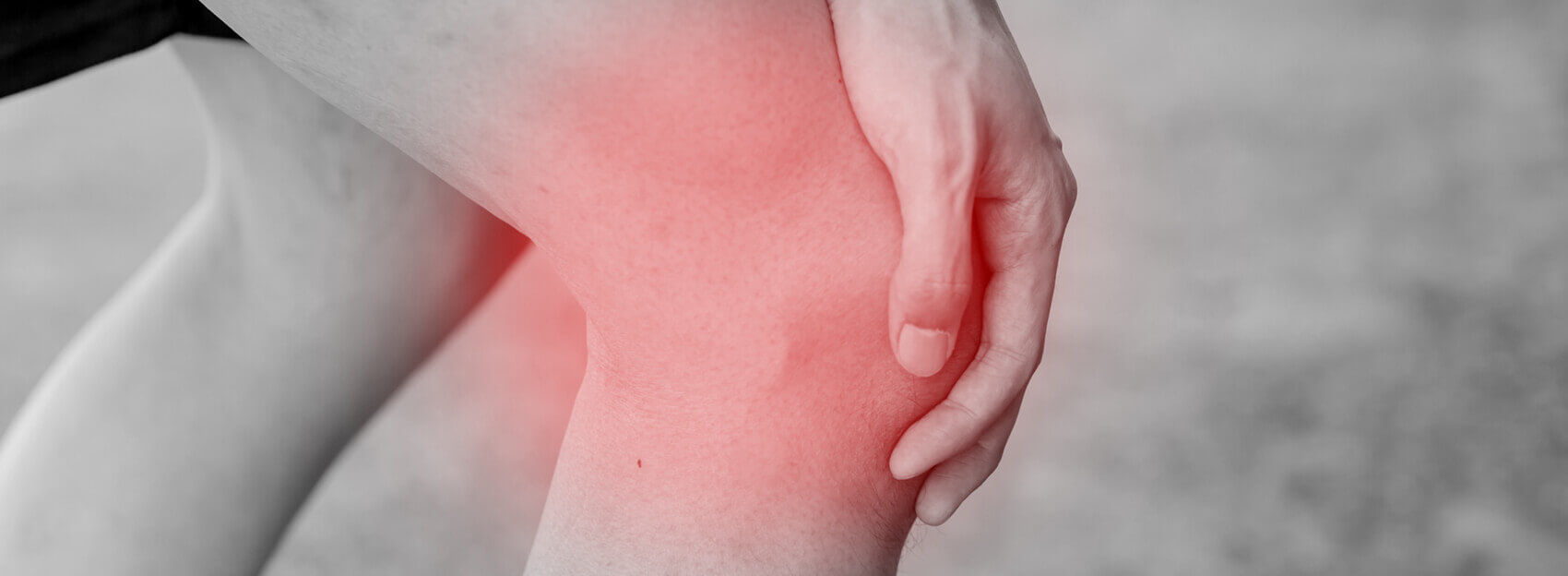At Long Island Spine Rehabilitation Medicine, we regularly diagnose and treat knee injuries, one of the most common of which is a meniscal tear. While in severe cases meniscal tears may require surgical intervention, our doctors specialize in nonsurgical therapies that address pain relief and restoration of function. Our area of expertise is known as physiatry. Fortunately, in a great number of cases, our highly skilled physiatrists can help you heal completely from a meniscal tear without having to undergo an operation.
What is a meniscal tear?
A knee meniscus is a ring of cartilage that provides a cushion between the shinbone (tibia) and thigh bone (femur) at the knee joint. When menisci are torn, patients typically experience pain at the inside of the knee, then swelling, stiffness, and limited mobility.
Any activity that causes you to twist your knee, especially when it is weight-bearing, can lead to a meniscal tear. For many people, such tears occur during sports or exercise, but for others, especially older adults, these injuries can happen due to the degeneration of cartilage that normally occurs with aging. A high percentage of individuals over the age of 65 suffer meniscal tears.
Causes of Meniscal Tears
In sports like football, skiing, volleyball, basketball or wrestling, meniscal tears often occur in combination with other knee injuries, like anterior cruciate ligament (ACL) tears. Players may tear a meniscus as they forcefully twist the knee while:
- Rotating
- Jumping
- Pivoting
- Kneeling
- Squatting
- Undergoing a direct tackle
Older patients, whose cartilage is already worn and thin, may tear a meniscus by just standing up from a seated position or performing some other ordinary action. Heavy lifting may also result in a torn meniscus.
Symptoms of Meniscal Tears
The symptoms of meniscal tears vary from person to person. Although some patients experience sharp pain and find themselves suddenly unable to walk normally, others have only mild discomfort that appears and worsens more gradually. Much depends on the type, extent, and severity of the tear. If you’ve torn your meniscus, you may come to Long Island Spine Rehabilitation Medicine with some of the following symptoms:
- Popping or clicking sensation in your knee
- Locking (difficulty fully straightening) your knee
- Swelling or stiffness of your knee
- Pain, especially when twisting or rotating your knee
- Buckling, the feeling that your knee is giving way
- Limited range of motion of your knee
If you are experiencing any of the above symptoms, you should contact Long Island Rehabilitation Medicine as soon as possible. Left untreated, a meniscal tear may well get worse. It is entirely possible that even if your tear is not a bad one, delaying treatment can in less common instances result in the meniscus coming loose and slipping the joint. In such cases, you will need surgery to restore full function. In addition, untreated meniscal tears can lead to complications, such as arthritis, regardless of your age.
Diagnosis of Meniscal Tears
The doctors at our offices are excellent diagnosticians. We will take any of the following steps we deem necessary in order to understand the precise location and distinctive features of your particular injury. The first two steps are mandatory in any case:
- Full medical history, including any past surgeries or underlying conditions
- Physical exam for soreness of the knee and range of motion tests*
- Imaging options: X-rays, CT scans, MRIs, ultrasound (the last two targets soft tissue)
- Electromyography (EMG) and nerve conduction studies to detect neurological damage
- Ultrasound-guided examination of musculoskeletal tissues to show us precisely where your pain originates
At Long Island Spine Rehabilitation Medicine we are well aware that it is essential to have a proper diagnosis in order to develop a customized treatment plan for your particular problem.
Treatment of Meniscal Tears
We have a wide array of treatment options. Depending on your overall health, our medical findings, and your preferences, we will determine which options best suit your unique needs.
Typically, the combination of therapies known as RICE (rest, ice packs, compression, and elevation) is helpful in providing immediate relief, as are NSAIDs (non-steroidal, anti-inflammatories, like ibuprofen). We can then choose one or more of the following therapies we know to be effective:
- Acupuncture
- Platelet-Rich Plasma (PRP) to promote healing
- Physical therapy, including electrical stimulation, by well-trained, talented physical therapists who know precisely how to restore your strength and range of motion
- Ultrasound-guided injections of a corticosteroid and an analgesic to relieve pain and inflammation directly at the source
- PEMF (Pulsed Electromagnetic Field) technology which, in addition to treating pain and inflammation, increases blood flow to your cells to promote more rapid healing
We have a history of excellent results with these methods. Even if your injury is serious enough to require surgery, and we have to refer you on to a well-respected orthopedic knee surgeon, we will most certainly be able to make you more comfortable in the short-term and strengthen your leg muscles prior to the operation. By the same token, we will happily assist you during your post-surgical recovery.
Risk Factors for Meniscal Tears
As noted previously, engaging in sports that involve twisting of the knee increases your risk of tearing your meniscus. So do obesity and the unavoidable act of aging.
Contact the Doctors at Long Island Spine Rehabilitation Medicine Today
Our goal is always to improve your health, mobility, and sense of well-being. We take a holistic approach that comes naturally to our caring professionals. We are determined to make our personal attention and compassion enhance the healing process. Contact one of our offices today to get started.
